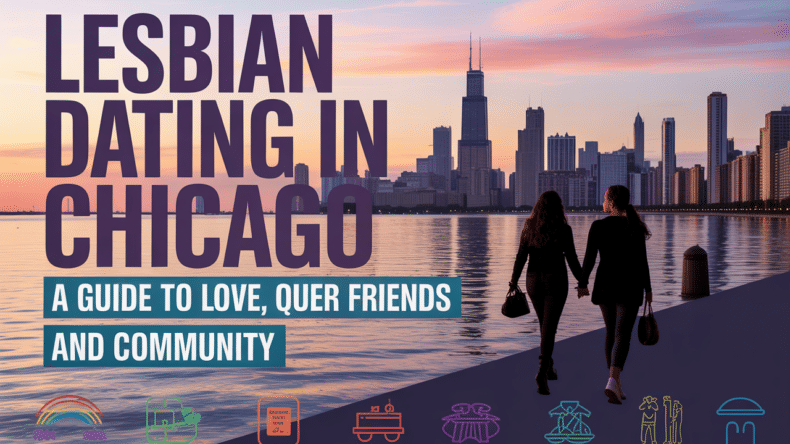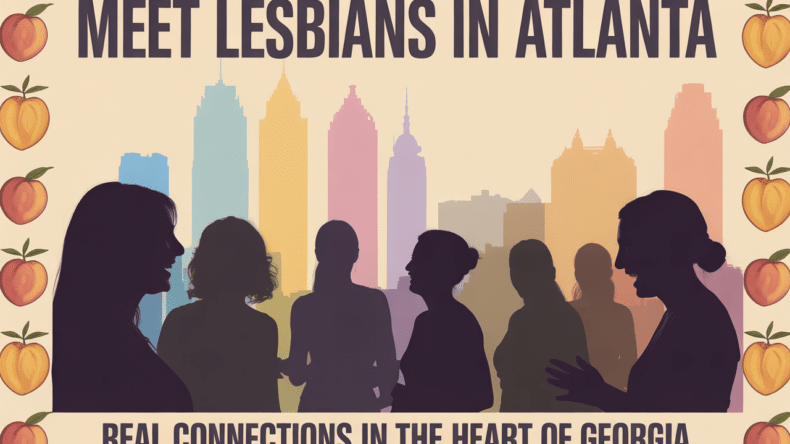Introduction
Lesbian women of color face a complicated reality shaped by triple jeopardy – a term that describes the combined effects of racial discrimination, gender bias, and prejudice against sexual orientation. This concept helps us understand the specific difficulties these individuals encounter as they navigate spaces where their identities intersect and overlap.
Imagine entering a room and feeling judged not once, not twice, but three times. This is the everyday reality for lesbian women of color who experience:
- Racial bias in both mainstream society and LGBTQ+ spaces
- Discrimination based on gender in professional and personal environments
- Homophobia from their racial communities and society as a whole
The effects of triple jeopardy go beyond individual experiences – it creates systemic obstacles that impact job opportunities, access to healthcare, social acceptance, and mental well-being. To develop effective support systems and advocacy strategies that cater to the specific needs of lesbian women of color, it is crucial to comprehend these interconnected challenges.
By examining triple jeopardy, we can see how various forms of discrimination come together to create distinct barriers that demand targeted solutions and inclusive methods for achieving social justice.
Understanding Intersectionality and Its Role in Triple Jeopardy
The concept of intersectionality emerged from the groundbreaking work of legal scholar Kimberlé Crenshaw in 1989. She introduced this term to describe how different forms of social categorization and discrimination interact to create unique experiences of oppression. The theory originated from her analysis of how Black women’s experiences differed significantly from both white women and Black men, highlighting the limitations of viewing discrimination through a single lens.
Key Principles of Intersectionality
Intersectionality recognizes that:
- Social identities don’t exist in isolation
- Different forms of oppression interact and reinforce each other
- Power structures create unique challenges for those with multiple marginalized identities
Social justice movements have historically struggled with addressing multiple identities. Many early feminist movements centered white women’s experiences, while civil rights movements often focused primarily on men’s perspectives. This single-axis approach left many individuals, particularly those with multiple marginalized identities, feeling unseen and unheard.
The Importance of Intersectionality for Lesbian Women of Color
For lesbian women of color, intersectionality provides a crucial framework for understanding their lived experiences. Their identities as racial minorities, women, and LGBTQ+ individuals create distinct challenges:
- Exclusion from mainstream LGBTQ+ spaces that center white experiences
- Marginalization within racial communities due to sexual orientation
- Gender-based discrimination compounded by racial and sexual orientation bias
Discrimination Rates Among LGBTQ+ People of Color
Research by the Williams Institute shows that LGBTQ+ people of color experience discrimination at significantly higher rates than their white counterparts. A study found that 79% of LGBTQ+ people of color reported experiencing discrimination based on their sexual orientation, while 85% reported racial discrimination.
Unique Barriers Faced by Lesbian Women of Color
The intersectional approach reveals how these various forms of discrimination create unique barriers in:
- Healthcare access
- Employment opportunities
- Housing security
- Social support networks
- Mental health resources
This understanding helps develop more effective support systems and advocacy strategies that address the specific needs of lesbian women of color. For instance, addressing the specific healthcare needs of these individuals can lead to more inclusive health policies and practices.
The Components of Triple Jeopardy: Racial, Gender, and Sexual Orientation Discrimination
Lesbian women of color face distinct challenges within each dimension of triple jeopardy, creating a complex web of discrimination that affects their daily lives. Let’s examine each component:
1. Racial Discrimination
Lesbian women of color experience various forms of racial discrimination, including:
- Exclusion from predominantly white LGBTQ+ spaces and events
- Limited representation in media and leadership positions
- Racial profiling in public spaces and workplace settings
- Cultural stereotypes affecting dating and relationships
- Barriers to accessing healthcare and social services
2. Gender Discrimination
Gender discrimination also impacts lesbian women of color in several ways:
- Wage gaps affecting economic stability
- Workplace harassment and limited career advancement
- Underrepresentation in decision-making roles
- Gender-based violence and safety concerns
- Dismissal of leadership capabilities
3. Sexual Orientation Discrimination
Additionally, lesbian women of color face unique challenges related to their sexual orientation:
- Rejection from family and cultural communities
- Religious-based discrimination
- Housing discrimination
- Healthcare provider bias
- Workplace discrimination and forced closeting
These forms of discrimination create unique challenges when they intersect. A lesbian woman of color might experience:
- Being passed over for promotion due to assumptions about both her gender and race
- Facing rejection from her cultural community due to her sexual orientation while simultaneously experiencing racism within LGBTQ+ spaces
- Struggling to find healthcare providers who understand the specific health concerns related to her intersecting identities
- Experiencing heightened risk of harassment that targets multiple aspects of her identity simultaneously
Research shows these combined discriminations create barriers in:
- Professional advancement
- Healthcare access
- Housing security
- Mental health support
- Community belonging
- Personal relationships
- Financial stability
The impact of triple jeopardy manifests in practical ways, such as a Black lesbian woman being denied housing due to both racial discrimination and couple status, or an Asian lesbian woman facing stereotypes about both her gender and sexual orientation in the workplace.
Mental Health Implications of Triple Jeopardy for Lesbian Women of Color
The ongoing experience of discrimination based on race, gender, and sexual orientation poses significant mental health challenges for lesbian women of color. Research shows that these individuals face higher rates of:
- Depression (3 times higher than the general population)
- Anxiety disorders (reported by 45% of participants)
- Post-traumatic stress disorder (PTSD)
- Substance abuse as a coping mechanism
Impact of Intersecting Identities on Stress Levels
A study conducted in 2021 by the American Psychological Association found that 78% of lesbian women of color reported experiencing chronic stress directly related to their intersecting identities. This constant state of heightened awareness and stress leads to:
- Sleep disturbances
- Decreased self-esteem
- Increased risk of suicidal thoughts
- Social isolation
Factors Contributing to the Psychological Burden
The psychological burden worsens due to:
- Limited access to culturally sensitive mental health care
- Fear of discrimination from healthcare providers
- Cultural stigma surrounding mental health treatment
- Financial obstacles in accessing quality care
Mental Health Disparities Among Lesbian Women of Color
Recent statistics reveal a troubling picture of these mental health disparities:
- 67% report experiencing symptoms of depression within the past year
- 55% have difficulty finding therapists who understand their unique challenges
- 72% have postponed seeking mental health treatment due to fear of discrimination
- 83% report encountering microaggressions in healthcare settings
These figures underscore the urgent need for mental health services that specifically cater to the unique experiences of lesbian women of color. The data illustrates how triple jeopardy creates compounded psychological stress, necessitating targeted interventions and support systems.
The Role of Culturally Competent Care
In addressing these mental health disparities, it’s crucial to recognize the importance of culturally competent care. Such an approach not only improves access but also enhances the effectiveness of treatment. Studies suggest that culturally sensitive therapeutic practices can significantly alleviate some of the psychological burdens faced by these individuals.
However, achieving this requires a concerted effort from healthcare providers to understand and respect the unique experiences and challenges faced by lesbian women of color. This includes recognizing the impact of microaggressions in healthcare settings and actively working to mitigate them.
In conclusion, the intersectionality experienced by lesbian women of color creates a complex web of challenges that significantly impacts their mental health. It is imperative that we work towards creating a more inclusive and understanding healthcare system that acknowledges and addresses these unique struggles.
Case Studies and Research Findings on Triple Jeopardy and Mental Health Outcomes
A groundbreaking study published in the Journal of Lesbian Studies reveals Black sexual minority women experience discrimination 2.5 times more frequently than their white counterparts. The research, conducted across multiple urban centers, documented experiences of:
- Workplace microaggressions (73% of participants)
- Healthcare discrimination (62% of participants)
- Housing discrimination (48% of participants)
Dr. Maya Thompson’s 2021 longitudinal study tracked 150 lesbian women of color over five years, revealing compelling patterns of stress response and resilience. Her research identified that participants who faced discrimination in multiple areas of their lives showed:
“A 40% higher likelihood of developing anxiety disorders and a 35% increased risk of major depressive episodes compared to individuals facing single-axis discrimination.”
Personal narratives from research participants paint a vivid picture of these challenges:
Sarah’s Story (34, African American)
“At work, I’m often the only Black person and the only openly gay person. People expect me to be their diversity spokesperson while simultaneously making me feel like an outsider. It’s exhausting carrying these identities in spaces that weren’t designed for us.”
Elena’s Experience (28, Latina)
“When I seek healthcare, I have to choose which part of my identity to hide. Some doctors dismiss my concerns when I mention my sexuality, others make assumptions about my health based on my race. Finding culturally competent care feels impossible.”
Recent studies by the Williams Institute highlight that lesbian women of color are three times more likely to postpone medical care due to previous discriminatory experiences, directly impacting their physical and mental well-being.
The Need for Inclusive Advocacy: Addressing the Unique Needs of Lesbian Women of Color Facing Triple Jeopardy
Inclusive advocacy demands recognition of the distinct challenges lesbian women of color face within both LGBTQ+ and racial justice spaces. Traditional advocacy approaches often fail to address the interconnected nature of discrimination these women experience.
Essential Components of Inclusive Advocacy:
- Creating dedicated spaces for lesbian women of color to lead conversations and initiatives
- Implementing intersectional approaches in policy development
- Ensuring representation in leadership positions
- Providing culturally competent mental health resources
Effective Allyship Strategies:
-
Listen and Learn
- Amplify voices without speaking over them
- Acknowledge personal biases and privileges
- Stay informed about specific community needs
-
Take Action
- Support organizations led by lesbian women of color
- Challenge discriminatory practices in your spaces
- Share resources and opportunities
-
Build Bridges
- Connect different advocacy groups
- Foster collaboration between movements
- Create inclusive community networks
Organizations must integrate these approaches into their core mission, not treat them as optional add-ons. True advocacy requires sustained commitment to addressing all forms of marginalization simultaneously. This intersectional approach strengthens both LGBTQ+ and racial justice movements by creating more inclusive, effective support systems.
Moreover, it is essential to recognize the importance of healthcare accessibility for these marginalized groups, as it plays a critical role in their overall wellbeing and empowerment.
Conclusion: Taking Action Against Triple Jeopardy for Lesbian Women of Color
Understanding triple jeopardy isn’t enough – action is essential. Here’s how you can make a difference:
-
Educate Yourself and Others
- Read works by lesbian women of color
- Share their stories and experiences
- Challenge misconceptions within your communities
-
Support Organizations and Initiatives
- Donate to intersectional LGBTQ+ organizations
- Amplify voices of lesbian women of color
- Participate in advocacy events
-
Create Inclusive Spaces
- Advocate for representation in leadership positions
- Push for inclusive policies in your workplace
- Build diverse support networks
The path forward requires sustained commitment from allies and advocates. Your actions today shape a future where lesbian women of color face fewer barriers and experience genuine acceptance across all aspects of their identity. Start by asking yourself: “How can I use my position to challenge systems that perpetuate triple jeopardy?” Then take meaningful steps to create change in your sphere of influence.





